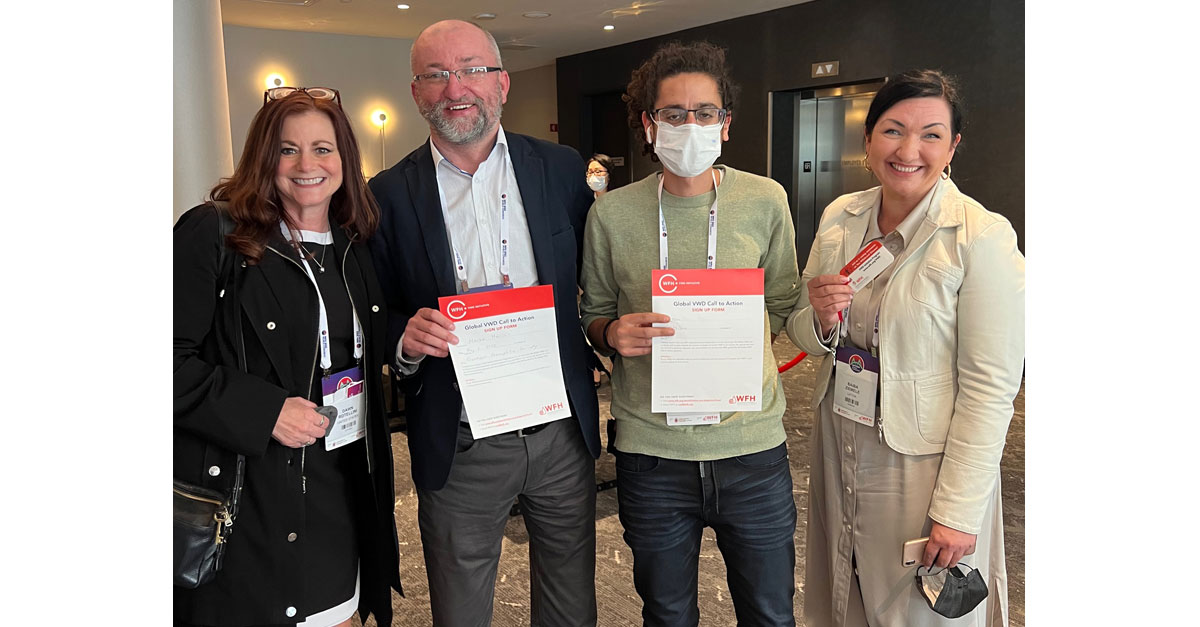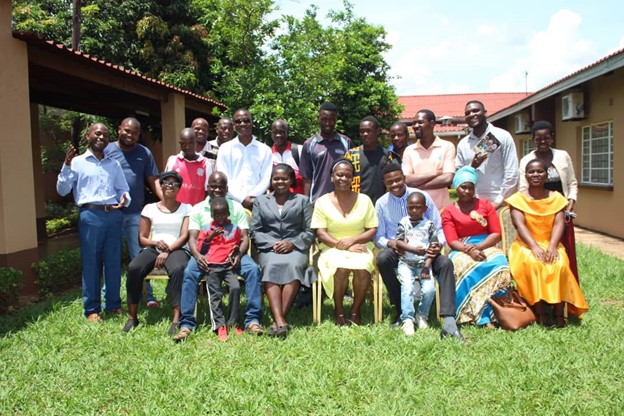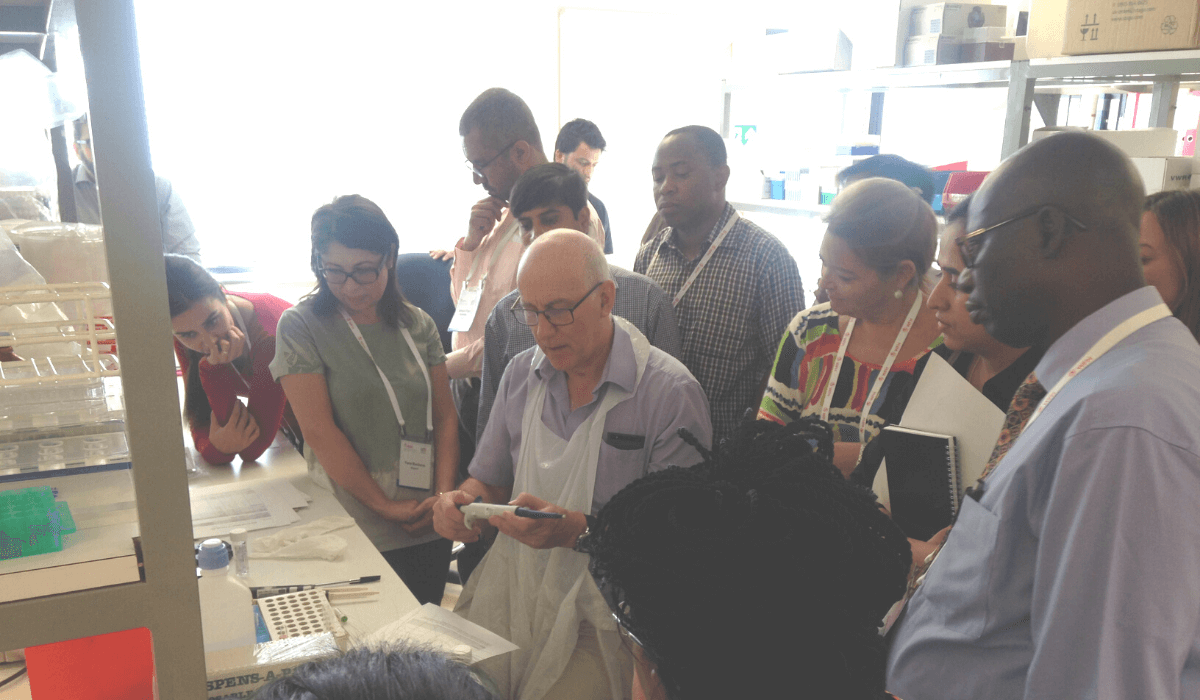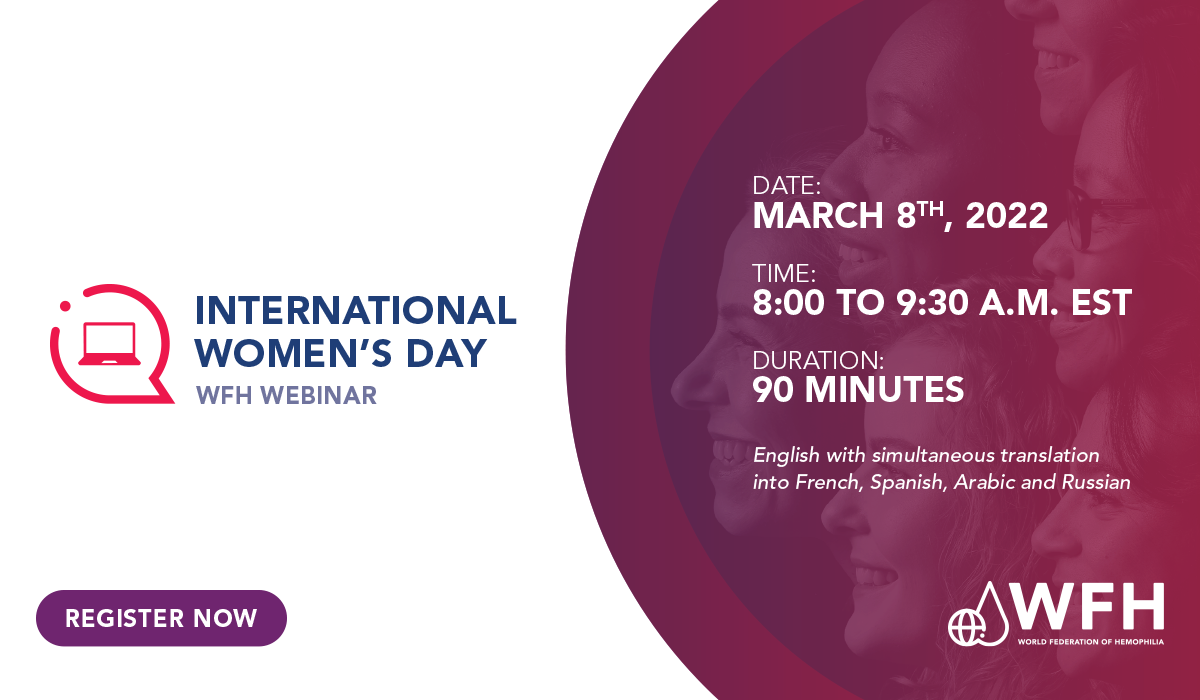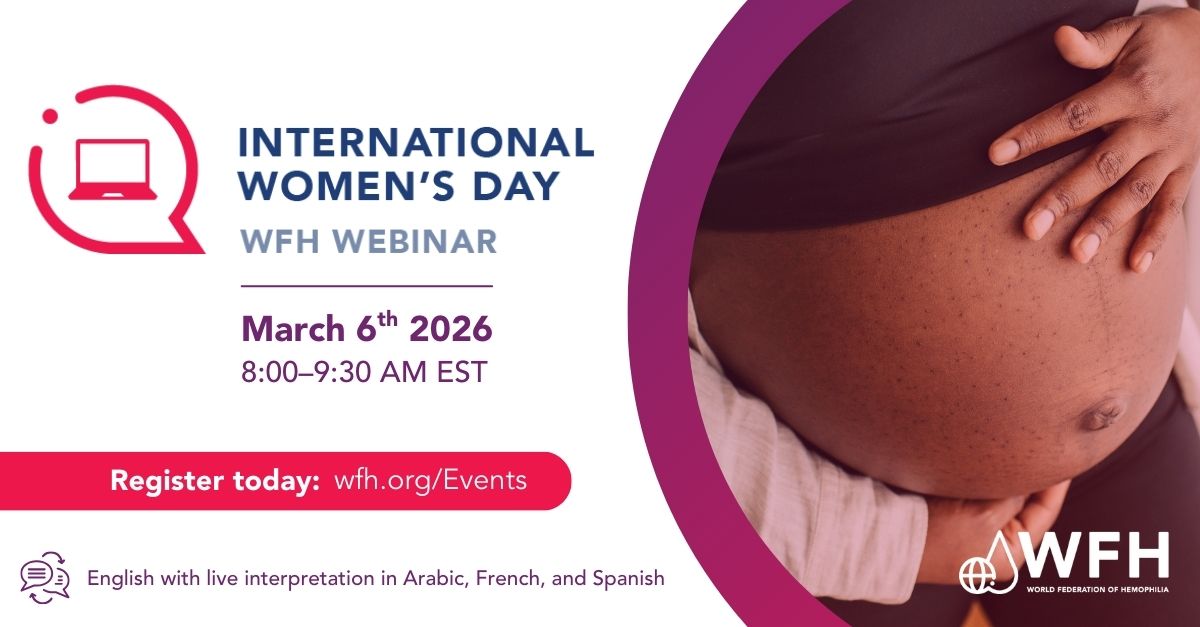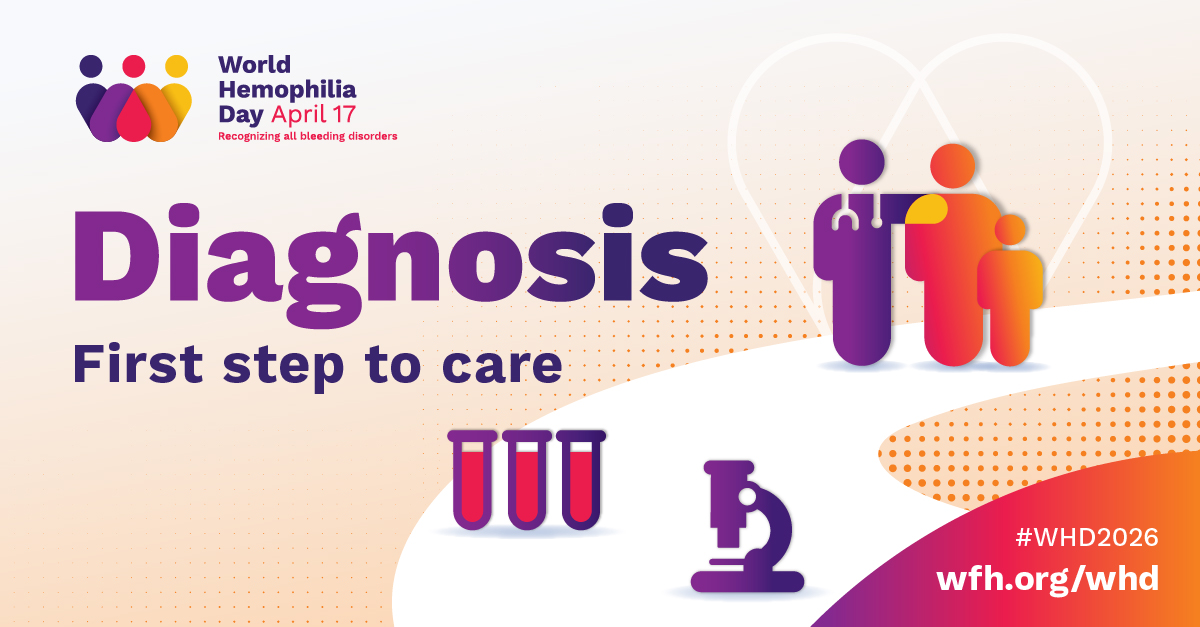A Cornerstone Initiative country project is implemented for a period of up to four years, depending upon the needs of the country, the goals of the program, the level of success reached, and the amount of funding. The process is carried out in three phases.
- Assessment. During the assessment phase, the WFH gathers information and establishes an ongoing working relationship with the patient organization and healthcare professionals. The WFH then conducts a site visit to identify local needs and priorities, and define program objectives.
- Implementation. The WFH implements planned activities that address specific areas that need to be supported and strengthened. Progress is monitored and evaluated on an annual basis by program staff and expert volunteers.
- Phase-out. Once the country’s objectives have been reached—and the results are considered sustainable—the WFH begins a gradual phase-out of the Cornerstone Initiative. Participating countries that have demonstrated the motivation and the potential to improve bleeding disorders care can then apply for other WFH development programs.
The Cornerstone Initiative is currently active in the following countries: Tanzania, Mozambique, Benin, Mauritania, Madagascar and Tajikistan.
You can help build infrastructure and provide training to ensure that basic diagnosis and bleeding disorders treatment is available in some of the most underserved countries and regions in the world. To learn more, click here.
